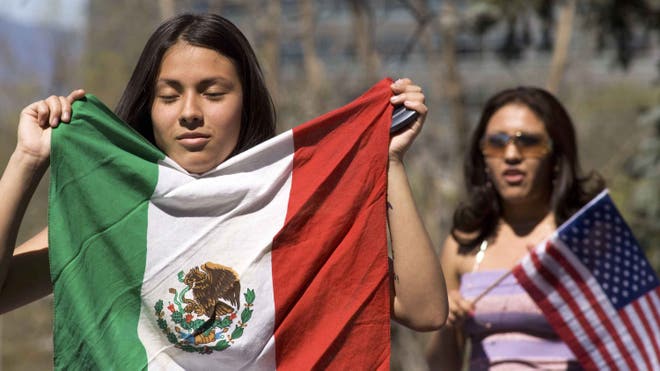A flag is important to this girl In reversal, 2 G
Post# of 52110

In reversal, 2 Georgia state universities open admissions to undocumented students

ATLANTA (AP) – Prospective college students in the country illegally are now eligible for consideration at two Georgia state universities that have prohibited their admission in recent years.
The Board of Regents, which governs the University System of Georgia, adopted a policy in 2010 that prohibited any of its schools that has rejected academically qualified applicants in the previous two years from accepting people in the country illegally. That has barred them from the state's five most competitive schools.
That policy remains in place, but two of those schools — Georgia State University and Augusta University — have effectively become less competitive, having admitted all academically qualified applicants through general admissions for the last two years. As a result, people without lawful status may be admitted to those schools, though they would have to pay the out-of-state tuition rate even if they live in Georgia.
People not in the country illegally will be eligible to attend the two schools beginning with the spring 2017 semester. They still cannot gain admission to the University of Georgia, Georgia Tech or Georgia College and State University.
The October 2010 policy came amid public concerns that the state's colleges and universities were being flooded by people in the country illegally, that taxpayers were subsidizing their education and that legal residents were being displaced. It was implemented in spite of a study conducted by the Regents that found that less than 1 percent of the state's public college students were not legally present, and that students who pay out-of-state tuition, as people in the country illegally are required to do, more than pay for their education.
Three immigrant students who are beneficiaries of a 2012 Obama administration policy that granted temporary permission to live and work in the U.S. to young people brought to the country as children and are living here illegally but who meet certain criteria filed a lawsuit in September challenging the policy. The Regents have said students with temporary permission to stay under that program — known as Deferred Action for Childhood Arrivals, or DACA — do not meet the requirement of "lawful presence" in the U.S.
The lawsuit says the university system policy is pre-empted by federal immigration law and therefore violates the supremacy clause of the U.S. Constitution.
The university system recently conducted a review of its general admission requirements relating to its policy on admission of people in the country illegally as a result of that litigation, according to a university system statement.
Burth Lopez, one of the Mexican American Legal Defense and Educational Fund lawyers who filed the lawsuit, said the change is a step in the right direction.
"Overall, it's better that there are less schools that are unconstitutionally discriminating against Georgia residents," he said. But he added that the university system's policy still "continues to harm Georgia students that are trying to either go to those schools or who would have been able to apply but didn't apply on the basis of this classification."
 (0)
(0) (0)
(0)